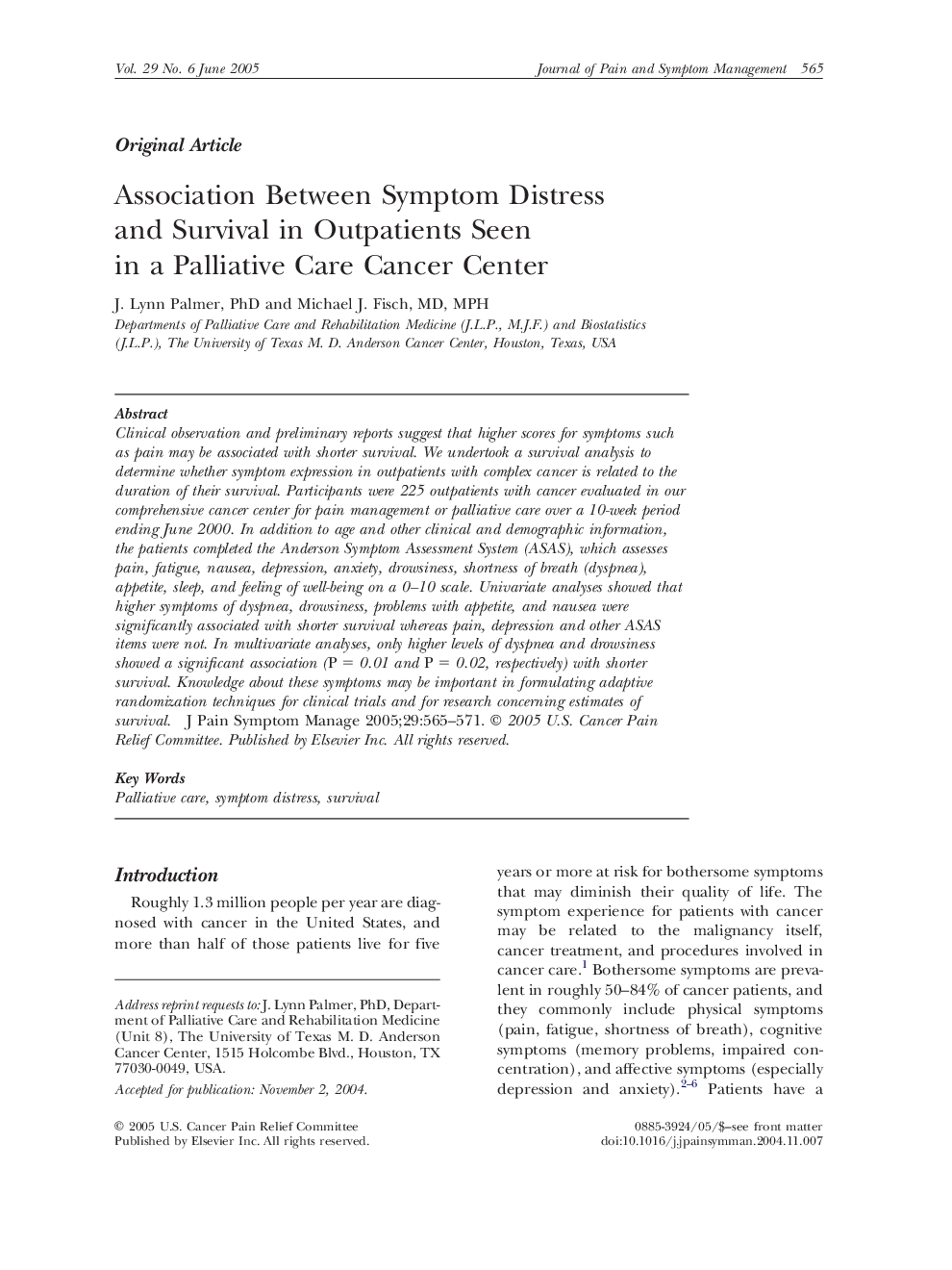| Article ID | Journal | Published Year | Pages | File Type |
|---|---|---|---|---|
| 9087373 | Journal of Pain and Symptom Management | 2005 | 7 Pages |
Abstract
Clinical observation and preliminary reports suggest that higher scores for symptoms such as pain may be associated with shorter survival. We undertook a survival analysis to determine whether symptom expression in outpatients with complex cancer is related to the duration of their survival. Participants were 225 outpatients with cancer evaluated in our comprehensive cancer center for pain management or palliative care over a 10-week period ending June 2000. In addition to age and other clinical and demographic information, the patients completed the Anderson Symptom Assessment System (ASAS), which assesses pain, fatigue, nausea, depression, anxiety, drowsiness, shortness of breath (dyspnea), appetite, sleep, and feeling of well-being on a 0-10 scale. Univariate analyses showed that higher symptoms of dyspnea, drowsiness, problems with appetite, and nausea were significantly associated with shorter survival whereas pain, depression and other ASAS items were not. In multivariate analyses, only higher levels of dyspnea and drowsiness showed a significant association (PÂ =Â 0.01 and PÂ =Â 0.02, respectively) with shorter survival. Knowledge about these symptoms may be important in formulating adaptive randomization techniques for clinical trials and for research concerning estimates of survival.
Related Topics
Life Sciences
Neuroscience
Neurology
Authors
J. Lynn PhD, Michael J. MD, MPH,
